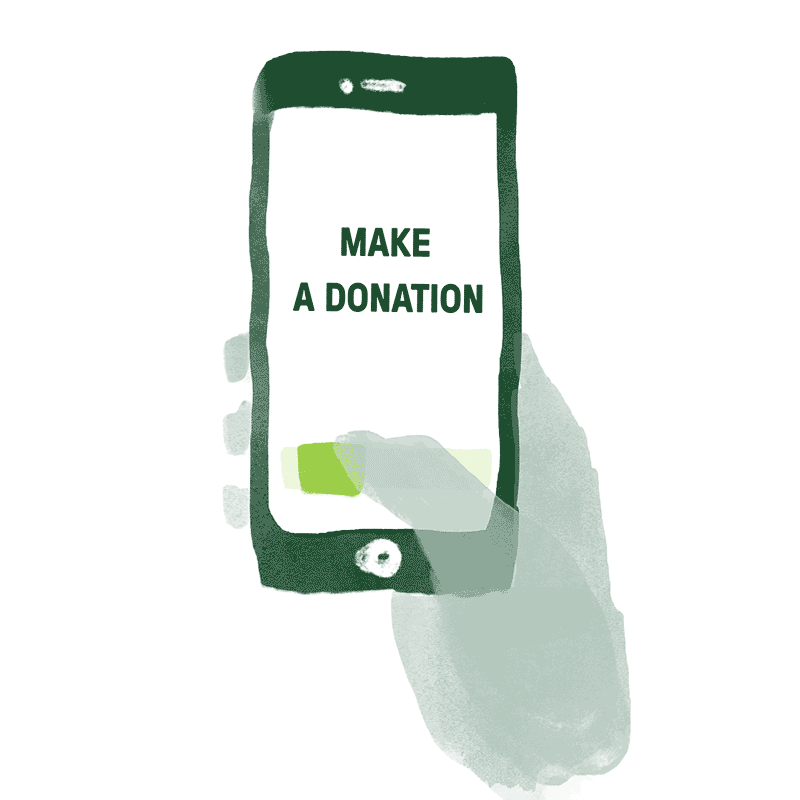
1. Donation: The blockchain creates a reference for each donation. The reference allows users to track exactly how their donation is used.
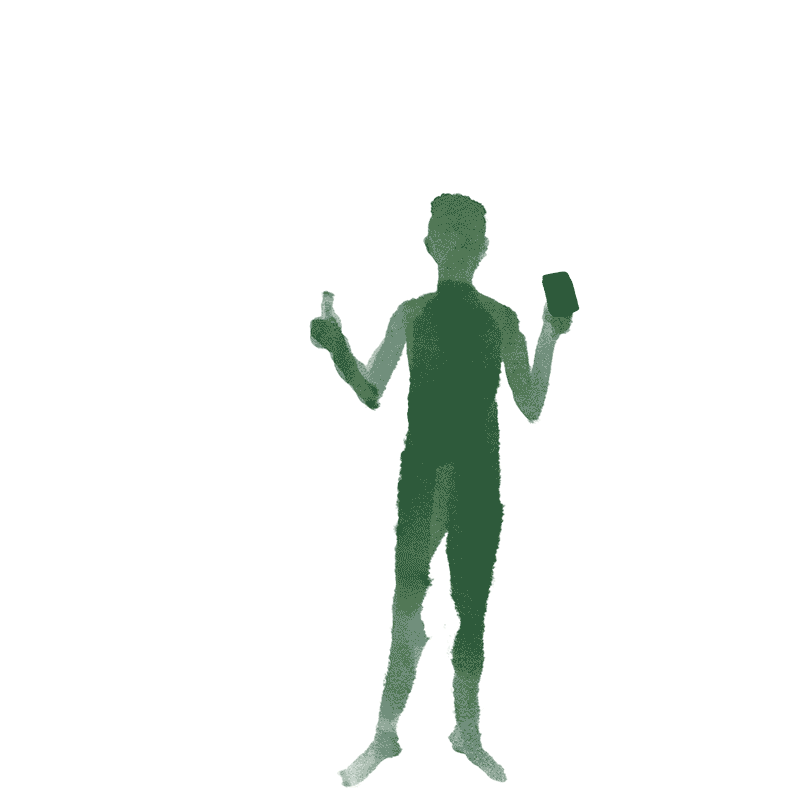
2. Beneficiary registration: Blockchain technology enables electronic registration of beneficiaries, for instance, biometrically through fingerprint or iris scans or with smart cards.
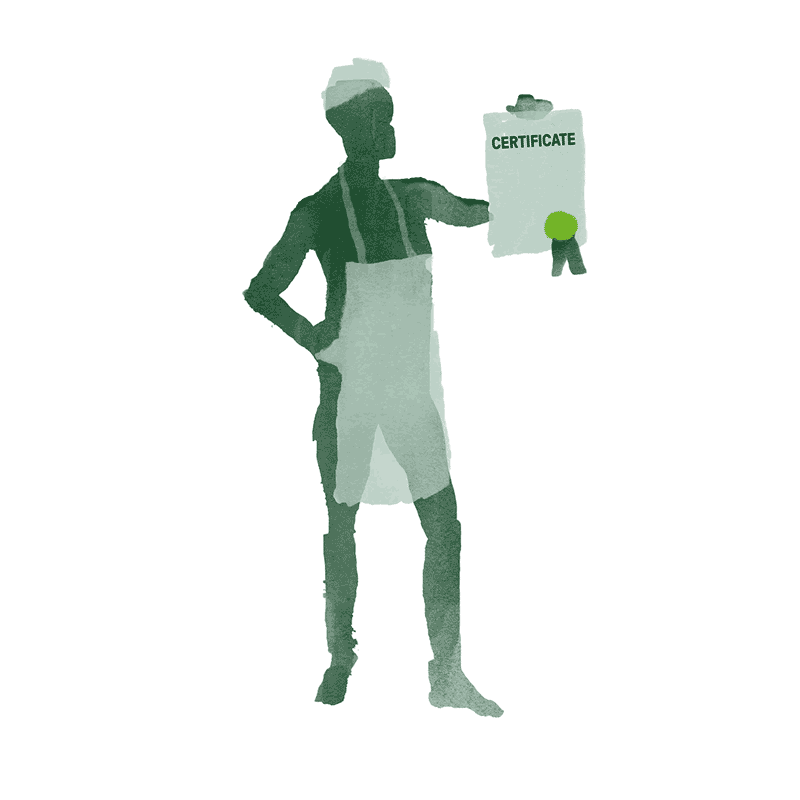
3. Verified retailers: Retailers of food and other necessities are equipped with the relevant technology for identifying beneficiaries and trained in using the system.

4. Redemption: The retailer receives payment from the NGO that coordinates the operation for the items they have sold to identified beneficiaries.
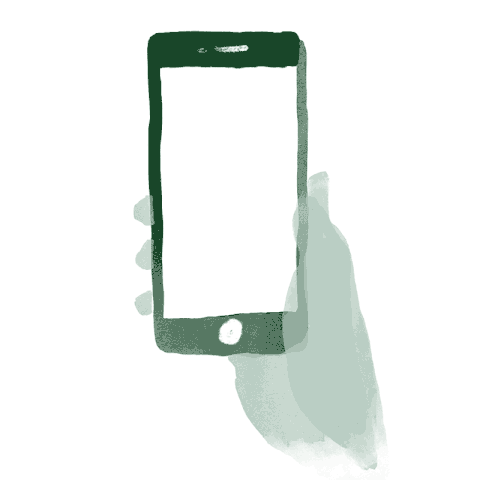
5. Monitoring: If transactions are made electronically, the smart contract enables the donor to follow up on how the beneficiary spends the assistance in real-time through an online link.
The benefits and challenges of cash assistance
Cash transfers are one way to ensure that a greater amount of assistance funds directly reaches those in need while also enabling vulnerable families to decide for themselves what they need and prioritise their procurements. Local retailers benefit from increased activity at local markets.
Distributing cash does also bring challenges. The beneficiary is subject to risks by carrying relatively large amounts of cash in a fragile context. To ensure that the money does not instigate fraud or corruption, organisations need to allocate staff for monitoring and follow-ups.
The spread of the coronavirus has also complicated arrangements of cash distributions, and the use of cash increases the risk of transmitting the virus between people at local markets.
With the support of blockchain technology, an organisation can create a virtual wallet for each beneficiary. The beneficiary can then buy necessities from verified retailers equipped with the appropriate identification equipment. Transactions are followed virtually, making monitoring easy, and the blockchain enables safer transactions that protect the identity of the beneficiaries.
Text: Erik Nyström
Illustrations: Tuukka Rantala
The violence sparked by the presidential and parliamentary elections in the Central African Republic has plunged the country into a humanitarian crisis. The unrest began ahead of the election on December 27 and forced 200,000 people to leave their homes, according to UNHCR.
The Central African elections were disrupted by attacks of armed groups in several areas across the country. As a result, several voting stations were closed, and the situation remains fragile. Finn Church Aid (FCA) evacuated its field office staff from Bozoum, Bossangoa, Bangassou and Mbaiki to the capital Bangui. Only the field office in Berberati remains open, apart from the country office in Bangui, where the other programmes are now managed remotely.
On January 21, the authorities declared a 15-day state of emergency that restricted movement and put the capital Bangui under a curfew from eight in the evening until five in the morning. The capital’s security situation continues to fluctuate but is calmed by the UN peacekeeping mission MINUSCA’s presence.
FCA monitors the situation of the field office areas to evaluate when the staff can return safely.
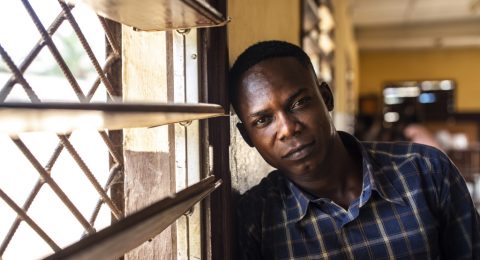
FCA supports youth peace clubs in the capital Bangui.
Africa is one of the world’s fastest-growing markets, despite facing many challenges across the continent. Political ties of African countries, security issues and the effects of global phenomena, like climate change and the Covid-19 pandemic, have an increasing influence on the entire world.
This is why an increasing number of actors build partnerships with African countries. Last year, the US launched a new Africa strategy. Russia held its first Africa summit, and China has meticulously strengthened its ties with the continent. This year, the EU has worked on its own partnership strategy.
How should Finland position itself to play a part in Africa’s future?
FCA has released a document with recommendations for Finland’s Africa strategy. It emphasises that Africa is a continent of youth. They form the continent’s future and affect the entire world.
FCA argues that Finland can achieve its goal of having an impact beyond its size if its Africa strategy manages to harness the continent’s youth dividend for positive change and development.
While national populations in other parts of the world are ageing, most African countries have majority youth populations. Currently, 60% of Africa’s population is under the age of 25. These young women and men bring great potential for the African future. By 2050, there will be 2 billion Africans, and one-third of the world’s youth will be in sub-Saharan Africa.
Some of the most pressing needs in African countries coincide with areas where Finland stands out as a global leader, such as quality education, linking learning to earning, sustainable livelihoods and promoting peace, security, gender equality and good governance.
A mutually beneficial partnership is an opportunity for both Africa and Finland.
Learn more about the path forward from FCA’s recommendations to Finland’s Africa strategy. Download the document by clicking here.
The global pandemic is not only a risk to people’s health – it causes deep insecurity and fear for people’s livelihoods in countries with weaker social security systems.
The coronavirus affects people in the global South as well as the North but developing countries face an even greater threat because of weaker health care systems. The same goes for restrictions designed to curb the spread of the virus: entrepreneurs that lose their livelihoods do not have the same social security systems in developing countries as in many European countries.
FCA supports livelihoods in 13 countries, such as Nepal, Cambodia and Uganda. Entrepreneurs often start businesses based on handicrafts, mechanics, retailing, local services or farming.
Rural businesses evolve around agriculture or the processing of agricultural products, like the preservation of food. Business activities take place in markets, and sales drop immediately when public gatherings are prohibited and markets closed.
Service-based businesses lose their customers due to movement restrictions and reduced purchasing power. Small retailers and the hospitality sector are hit hard.
Handicraft workers can continue their production as long as they have materials but their sales are affected as well. Any entrepreneur can face difficulties in paying back loans if they lack an income.
Farming usually continues uninterrupted and governments do their best to keep food markets open. Longer term problems arise if the harvested products do not reach the markets, as ability to plant during the next season depends on the income a farmer fetches from each harvest. In addition to individual farmers, this can have a wide-spread effect on the availability of food.
Debt reorganisation key after the corona crisis
Village based cooperatives and saving groups are at the core of FCA’s and the Women’s Bank’s operations. They support their members in various ways, for instance through loans for business development. FCA supported cooperatives can in these cases offer debt reorganisation.
For instance, after the earthquake in Nepal, loans were granted interest-free months. Debt reorganisation and support to resuming business activities are key after the corona crisis.
The income of families is also affected by the reliance on labour migration in low-income countries. In Nepal, as much as 30 percent of the country’s GDP consists of money received from migrant workers. An interruption in their payments has far-reaching consequences at home.
Besides losing their income, hundreds of thousands of migrant workers have difficulties or are not able to reach their families due to travel restrictions, such as closed borders.
The coronavirus is a particular burden for countries that are already fragile, and for families that are already vulnerable. Besides the risk of falling sick or losing livelihoods, families face the threat of food insecurity and children a disruption of their education. Poverty puts people at risk for abuse.
It is crucial that we already look past the pandemic and support developing countries in this global crisis.
Text: Ulla Sarasalmi
Ulla Sarasalmi is Finn Church Aid’s Senior Livelihoods Adviser.
The coronavirus pandemic does not mean that other crises are less urgent but it has rapidly restricted work with development cooperation, humanitarian aid, peacebuilding and climate change. We now have to fight many battles at the same time.
When the severity of the coronavirus dawned upon the world, I was in a remote location in South Sudan. In New Fangak’s swamp, movement is possible either by foot or boat. There are no roads or cars, and the isolation is sealed with only one flight a week.
New Fangak was severely hit by the conflict that broke out in South Sudan in 2013. The ruins of a hospital serve as a reminder of the crisis – and of its vulnerability to yet another one.
For the time being, New Fangak’s inaccessibility might keep it safe from the coronavirus. The people are currently concerned about the severe lack of food. Unprecedented floods had wiped out crops and drowned cattle. Many survive on porridge made from tree leaves.
Imagine being at the brink of famine, at the frontlines of climate change and on top of that facing the threat of a deadly global pandemic.
The pandemic poses a severe risk to work against climate change
The battle against the coronavirus has put the world in a difficult position with respect to its most vulnerable people.
People in countries with existing humanitarian crises are particularly exposed to the coronavirus, especially the world’s 65 million refugees and internally displaced people. Development and humanitarian aid operations have to adapt to tackle the virus.
At the same time, organisations are forced to scale back their operations and call home international staff. Education projects are halted when governments close schools, peace efforts are delayed with bans on gatherings, and humanitarian aid workers avoid travelling to reduce the risk of transmitting the coronavirus to remote locations with no healthcare.
Some of the restrictions designed for tackling the pandemic might look like they would serve the battle against climate change. The coronavirus has rapidly restricted global travel and consumption, far more abruptly and efficiently than the anti-climate change movement. But it is not an achievement. The pandemic actually poses severe risks for work against climate change as prosperity declines and suffering economies urgently need stimulation. Emissions can even increase when industries are back in business.
The political will for financial commitments to tackling climate change might decrease as a result of the cost of fighting the coronavirus. The same risk is evident for any other crisis as major donors fear a global recession might hit them at home.
But the economic decline will have more severe effects on low-income countries, like those in Sub-Saharan Africa. Millions of families live from hand to mouth. A woman working at any local market usually spends her daily income to feed her family in the evening. When she is forced to close her business her family suffers the consequences the very next day.
A prolonged crisis with societal lockdowns risks exacerbating poverty and cause discontent.
People in fragile countries like South Sudan are facing multiple crises but governments and organisations are forced to restrict development cooperation and humanitarian work to prevent the spread of the coronavirus.
We have to respond to many crises at the same time
It is clear that we need to fight the coronavirus today. The need for health care support, dissemination of information, thorough hygiene practices and social distancing is acute.
But we cannot afford to forget everything else. At the other end of the urgency-scale are much-needed systemic changes to battle the climate crisis. We cannot give up on the need to rethink transport, infrastructure, food and energy production and much more. We also need to continue peacebuilding efforts and respond to food crises that are key for stability.
While the battle against the coronavirus is a hundred-meter sprint – and the race is well underway – the battle against climate change is a marathon, and all other crises fall in between. We just have to run all races at the same time.
Because all crises are bound together by the need for global cooperation and resilient societies.
Erik Nyström is Finn Church Aid’s Manager of International Communications.
Imagine yourself in a big room. Slowly you realise that the walls and ceiling seem to be moving closer. As you dash to the back wall to stop its movement, the front wall creeps forward, too.
The government gives you a set of new rules that should keep the walls where they are. You implement the rules and strive for total compliance, and for a while, it seems to work. However, in the back of your mind, you are constantly trying to determine how small space you can continue to work in in a meaningful way. When do you step out of the door and close it behind you, maybe forever?
In recent years, the international debate on humanitarian assistance and development cooperation has brought up the issue of shrinking space for civil society. Physical threats have increased and aid workers in conflict zones are no longer safe like before. Deaths occur every year. Sometimes humanitarian access is denied, which is contrary to International Humanitarian Law.
More subtle means are also used. Even when a country is experiencing a drought, its government does not declare a state of emergency. This prevents humanitarian organizations from conducting needs assessments and coordinating potential relief efforts with sub-national authorities. The situation provides an opportunity for politicians to take advantage of vulnerable people: “Vote for me in the upcoming elections, and I’ll bring water to your field.”
The shrinking space concerns not only humanitarian assistance but also longer-term development cooperation in countries that can be considered to be on a reasonably good path of economic development. And that’s where the sophistication of how restrictions are enforced comes into play.
To start with, it is possible to slow down the processes of registration or of granting operating licenses for non-governmental organisations. The process can be stretched over a period of months or even years. During this time, if the previous license expires, an organization will fall into a delicate state of legal non-compliance. This, in the world of Kafka-like administrative processes, provides a government with a theoretical possibility of closing down the organization. Some organizations have a higher tolerance for this uncertainty than others. Organizations whose activities a government considers too critical because they e.g. defend human rights or raise environmental concerns are particularly affected.
The implementation of project activities may also be subject to authorization by government officials. All meetings of more than three people must be pre-approved. The authorities give themselves permission to suspend any event they deem inappropriate – even on something as benign as a training on vegetable growing.
Obtaining work permits for expatriate staff can be made difficult as well. It is understandable that some countries want to limit the number of foreigners working for NGOs and guarantee employment opportunities for their own nationals.
But after a long waiting period for a work permit, without permission to exit the host country before your paperwork is done, your thoughts start to centre around concerns. If there was a need for an emergency medevac, would I be allowed to leave the country? If a work permit is impossible to get for the new staff member, does the employee live in a neighbouring country and commute regularly to the country of employment? What are the economic, ecological and staff well-being costs of travelling between the two countries?
Sometimes, the administrative requirements on NGOs should in principle be supported. For example, building up taxation is a necessity for each country, because no government can develop better and more comprehensive services for its citizens without a broad tax base. International NGOs also need to contribute to taxes, even though it seems that taxes are being collected, but services are not increasing.
But when new taxes increase operating costs by ten per cent during a single year, even the usually happy taxpayer Country Director will be challenged when trying to balance budget figures. Many organizations have to give a second thought on their cost structure and continuity. Not every organization will continue.
Every international organization with operations in developing countries is faced with these issues. In some countries more often than in others.
When are the walls too close and meaningful operations no longer possible? What is the cost of aid? When do we reach the point where we need to hire more administrative staff just to ensure we are able to meet new administrative and legal requirements?
Each organization defines its own limits, and it may not be easy. Sometimes the reflection is daily or weekly, sometimes there are several good months in a row. It takes away valuable time from more productive work: coordination with other actors, improving quality, tracking results, developing new initiatives to better serve the people in need.
And that is exactly the purpose of shrinking the space for civil society.
Saara Lehmuskoski works as Country Director for Finn Church Aid in Cambodia. The examples mentioned in the text are a collection from her long career in development cooperation, not necessarily from the current country of employment.
With the support of FCA, psychotherapist Rowda Olad works in grassroots-level mental health care and participates in the reconciliation work in Somalia.
”In Somalia, people talk about invisible wounds, dhaawac yada qarsoon,” says psychotherapist Rowda Olad and describes how shocked she was to see the state of the entire nation’s mental health when she arrived in Somalia in 2016.
”A young boy was driving the moped taxi, tuktuk, at breakneck speed through central Mogadishu. I asked him to slow down. ’You’re going to get us killed!’ I yelled from the back seat. ’What does it matter if we die,’ the boy replied.”
”I was extremely shocked.”
Rowda says she immediately noticed that especially young men were not only fearless but also very angry. But in fact, almost everybody in Somalia seemed to be suffering from psychological traumas caused by the civil war and the violence, or from post-traumatic symptoms resulting from them.
”There is a lot of crime, as well as disregard for other people’s possessions or lives. Whenever there was an explosion in Mogadishu, people rushed to see what had happened, whereas the natural reaction would be to run away.”
”A person who is not afraid is not psychologically healthy,” says Rowda. “Seeing mutilated humans and bodies or victims of explosions is traumatising, especially to children.”
She witnessed and recorded all this during the first year after she and her family moved back to Somalia in 2016.
Psychological trauma changes a person’s world view and behaviour. In Somalia, aggressive behaviour can be seen often in everyday situations.
”Even during high-level political meetings, people may lose their temper at the drop of a hat.”
As a refugee in the United States
Rowda, who was born in Mogadishu, has her share of war trauma. The civil war began when she was seven years old.
Her siblings and other relatives scattered all over the world. With her uncle’s family, Rowda fled to the state of Ohio in the United States. She went to school and studied, but once she graduated from high school, she could not decide straight away what she wanted to do when she grew up. So, she volunteered to do social work with AmeriCorps. She helped Muslim immigrants, the Somali diaspora, young and old alike – and saw and experienced lots of things that could only be explained by the people’s backgrounds.
She started a volunteer group for young Somali women and became interested in studying to be a psychologist and psychotherapist. She also became fascinated with facets of Somali culture; what causes things? Why do we do this or think like this?
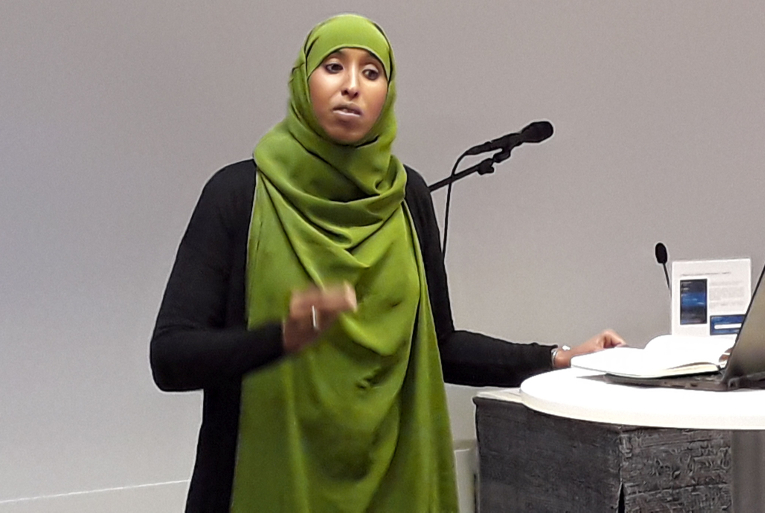
Rowda dreams of establishing a national mental health care system in Somalia. Photo: Kristiina Markkanen
Rowda studied, graduated, and worked as a psychotherapist. When the situation in Somalia began to settle down and the first post-war parliamentary election was held in 2016, even Rowda decided to move back to Somalia.
Rowda got involved in politics and initially worked in regional administration, but mental health care became more and more attractive. She dreams of founding a national mental health system in Somalia, entailing the entire structure, creating the foundations and the missing words for the work.
”For us, a person is either insane, waali, or not insane. There is no in-between, there are no other words. People who become seriously mentally ill are put in the hospital and forgotten there.”
”It is shocking,” she says.
Mental health care step by step
Rowda started her work in Somalia with small steps. She has been engaged in volunteer work and has spoken about mental health to representatives of the Ministry of Health.
”First, my aim has been to open people’s eyes to the role of mental health in people’s behaviour and actions, and from there, I have slowly expanded the idea to the national level.”
Rowda believes it is impossible for reconstruction and national reconciliation work to succeed without dealing with the trauma experienced by families, individuals and entire communities as well.
When people are traumatised, their capacity to function is impaired, which affects things such as their ability to work.
”The productivity of the entire nation, including entrepreneurs and civil servants as well as farmers, remains low.”
Rowda has started her own practice in Somalia, and with the support of FCA among others, has began a form of preliminary mental health care that she calls psychoeducation.
The purpose of the work is to talk about mental health and to provide different population groups with information. Topics include stress, depression, and how to overcome psychological trauma. What is considered ordinary grief and what kind of suffering is bad enough to require treatment.
The work also includes mental health care for prisoners and prison wardens. Inmates in the prisons of Somalia include both petty criminals and former terrorists, and it is important to get them too to commit to the development of Somalia.
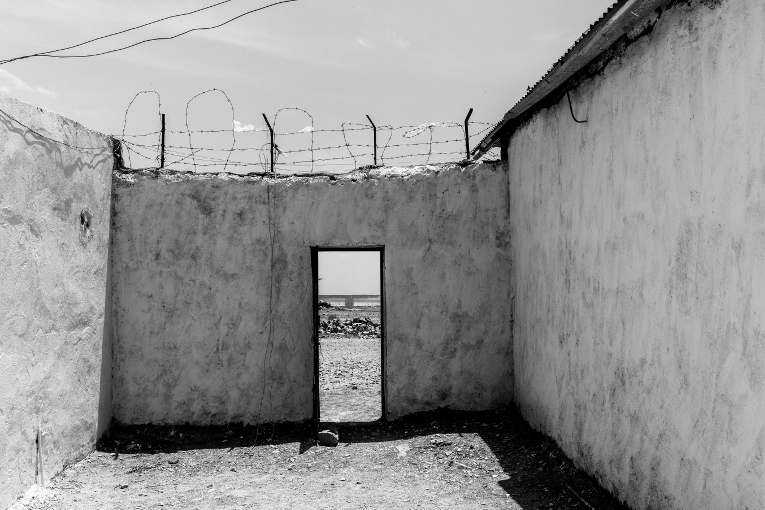
A prison in Somalia. Photo: Jari Kivelä
”Even in prison, I provide mental health education for groups, during which we talk about how the human mind works. I also do clinical work, give diagnoses, and offer individual therapy to those who need it. Sometimes I have to refer an inmate exhibiting severe psychological symptoms to hospital treatment.”
Working with inmates, Rowda goes through their identity and the paths that led them to prison. Those who grew up surrounded by war and violence may not have the kind of identity that allows them to see themselves as citizens of an organised society.
”For example, when I ask them who their role models are, they don’t say that as a child they wanted to be a doctor or a teacher, but might reply that they admire their father who was a war hero.”
Rowda says that she will soon start working with the families of inmates as well. This is difficult because many families have moved. However, the Somali culture is very family-oriented, and Rowda believes it is possible for criminals to become rehabilitated into society if they receive strong support from their family and community.
Even therapy is a completely new concept in Somalia. There are only doctors and psychiatrists who work in hospitals and prescribe medication. If a doctor gives a person medicine, the person gets better.
”When I tell a patient I am offering them treatment, they expect medication, not discussion.”
She also hopes that mental health issues become part of reconciliation work. Rowda believes there will be no real peace in Somalia before recognising trauma and overcoming it is taken seriously on the national level.
Text: Kristiina Markkanen
Translation: Leena Vuolteenaho
Rowda Olad visited Finland in June for the National Dialogues Conference for peace work organised by the Ministry for Foreign Affairs, Felm, CMI, and Finn Church Aid.
Before, as many Jordanians, we used to take up a two-hour drive to Syria on weekends to enjoy the green nature, stay by the coast, purchase good quality goods, and come back home. After nine years of war, it took us a five-hour drive to reach Damascus, but nothing was the same anymore. The border barely exists, the green road is full of damaged buildings on both sides, and there are countless checkpoints.
I visited Syria as part of an educational project that FCA Middle East office is implementing in rural Damascus. The war has been put to rest in most of the governorates of Syria, except some North-West areas like Aleppo and Idleb.
Our destination, the Old Town of Damascus was, was thankfully kept safe during the conflict. The old streets, the souqs, the mosques and the churches are still standing, witnessing sadly the damage of other old towns. There is not much war remains inside Damascus, and life seems normal. The city is buzzing with people, despite that you can definitely sense the pain and the suffering in people’s eyes, voices, and stories.
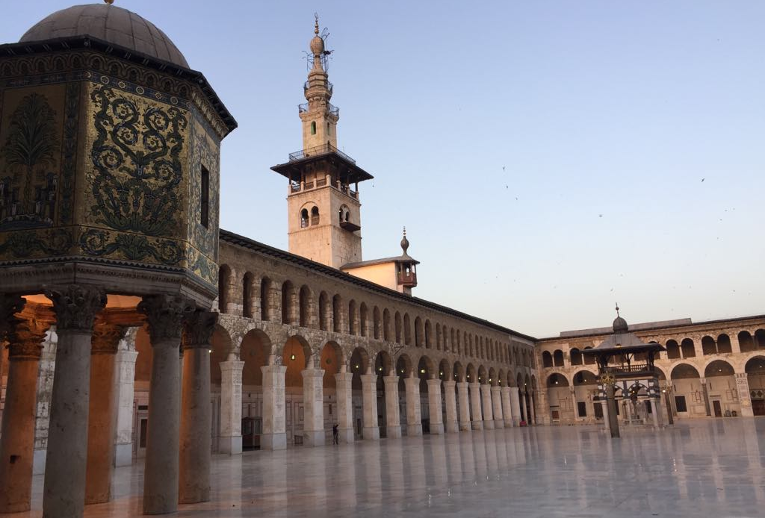
Umayyad Mosque in Damascus
During my visit, I facilitated a Training of Trainers (ToT) for 40 teachers and administrators, who despite all the obstacles and the frustrations came all the way to participate in the training actively, energetic and full of life. The training mainly focused on teacher competencies, planning for teaching, modern teaching strategies, evaluation strategies, classroom management, and facilitation techniques.
The ideas, the discussions, and the laughs we shared in the 6 days training are unforgettable. I was keen to join the participants at their tables during the breaks, and listen carefully to their stories; the woman who lost her father, the man whose house was destroyed, and the families who were forced to leave their hometowns and start over a new life from scratch.
“He was my only brother, but he was killed by a land-mine”, Diana describes.
During the training, the one and only question that kept racing through my mind: “Is war worth it?”
Over 2 million children – over one third of Syria’s children – are out-of-school and 1.3 million children are at risk of dropping out.
Nine years now of the prolonged conflict in Syria, and the needs are still huge, severe and demanding. As the number of IDPs estimated to be 6.2 million, some areas became overcrowded, resulting in the drainage of resources to the point that over 8 in 10 people in the country now live below the poverty line. As a sample of those areas, we visited Jaramana and Sahnaya in rural Damascus.
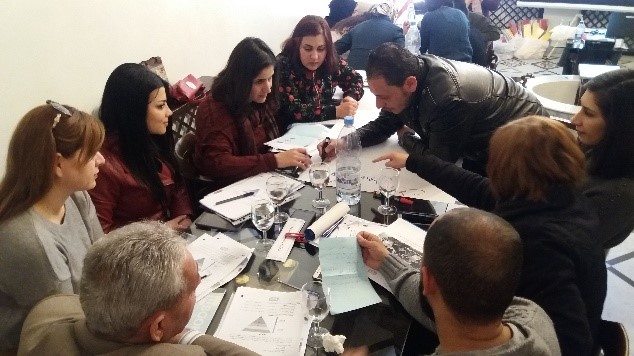
ToT training in Damascus
During our trip to Jaramana, my colleagues and I conducted field visits to the institutes that provide informal education for dropout students. They also provide remedial classes for 9th and 12th grade students to help them pass the national exams. Gladly, I had the chance to conduct coaching visits to some classes, in the purpose of observing and providing feedback. It is said: “Never underestimate the power of dreams!” That is exactly what is left for those children, dreams of a better future, where no more war or killing around.
In one class that I was coaching, the teacher was fully engaged in teaching the students a poem about freedom and patriotism. He asked all the questions, they replied with all the perfect answers, but I wonder if one of those students had a peek at the window, what he would think!
During that class, the one and only question that kept racing through my mind: “Is war worth it?”
Erbin: A tale of a devastated city
Later, the car moved slowly away from Damascus. Gradually, the noises started fading away until we found ourselves entering a world of silence; a town with no inhabitants, streets with no cars, even no birds, dogs or cats. It was more like a ghost town! And so we were informed that we arrived to what was left from Erbin, in East Ghouta.
In Erbin, you may drive for more than 10 minutes searching for a human being, or any sign of life, or even a non-damaged house, but you find nothing but destruction. In 2018, Erbin was exposed to restless heavy bombardment and raids for months, even hospitals and schools were repeatedly hit. One of the schools was used as a shelter. School activities were suspended for long period due to safety and protection reasons! According to OCHA report 2019, 10076 people are in need in Erbin.
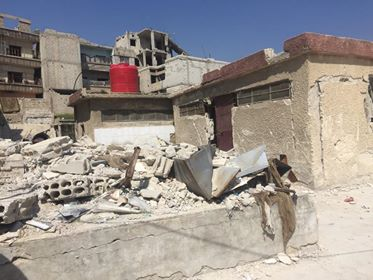
“The teachers haven’t been paid for a year now, but we show up every morning for the sake of those guiltless children”, a school principal explains.
FCA supports the rehabilitation of two schools in Erbin. Classrooms and washrooms will be renovated and walls will be painted.
On the same trip, we visited a vital center that St. Ephrem Patriarchal Development committee (EPDC) – FCA’s local partner – runs. It provides psychosocial support and informal education. The desire to live in better circumstances was a powerful motive driving everyone to work like busy bees, the hope of a better future could be easily sensed in every corner, it was contagious!
Also in Erbin, the same question kept racing through my mind: “Is war worth it?”
The trip came to an end, I went back home safe. The memories, stories and feelings I carried with me are irreplaceable. The visit was overwhelming, and it was only 12 days long. What about the Syrians, who live amidst those memories every single moment of every single day?
In Syria, one thought kept racing through my mind: “Is war REALLY worth it?”
Heba Suleiman
The writer works as a regional education adviser for Finn Church Aid










